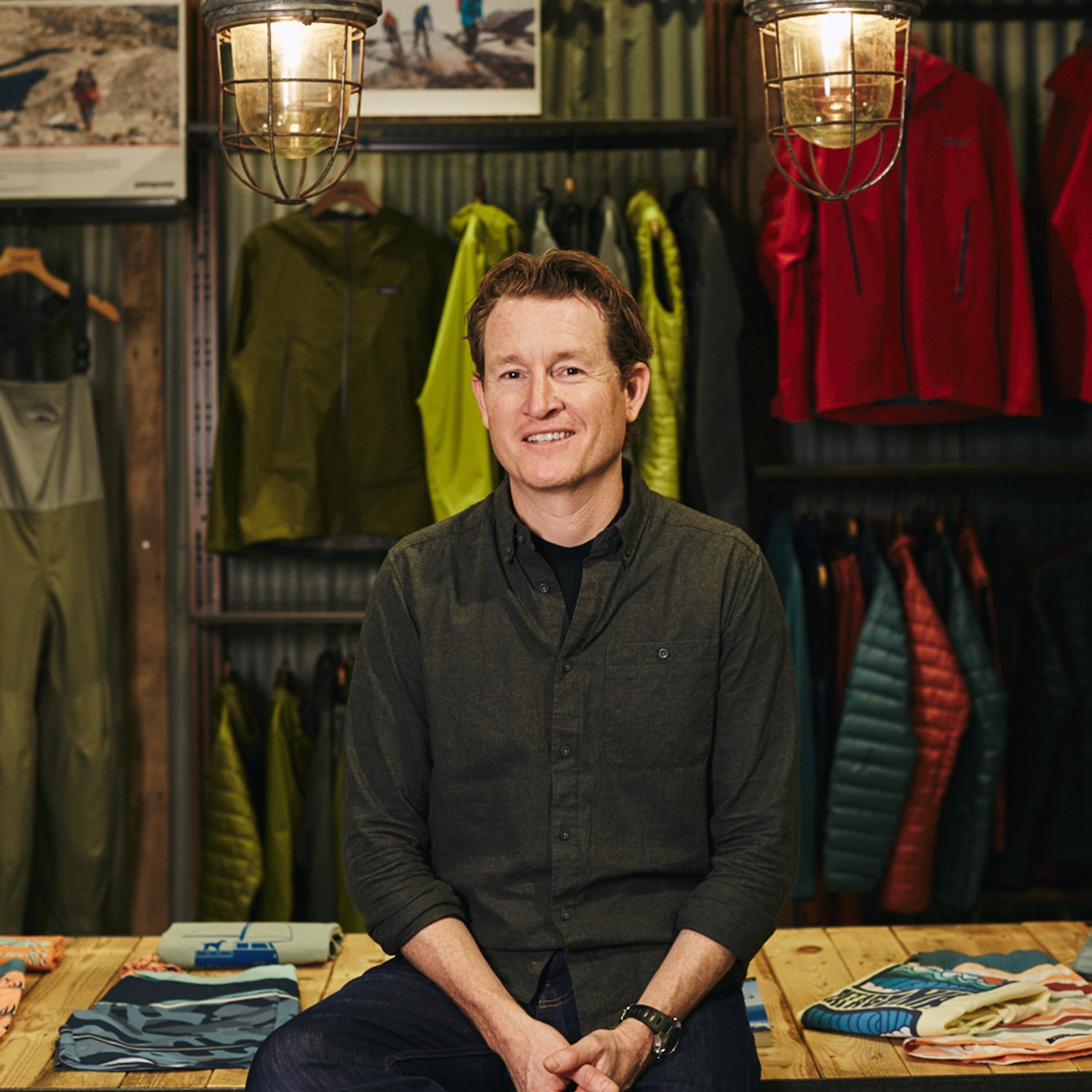Patagonia recently went hunting for the people who should next steer the most influential brand in the outdoor world. Turns out the company didn’t have to look any further than under its own roof: two of its own will run the business.��
The company announced today that Ryan Gellert will become CEO of Patagonia Works, the umbrella company for all its ventures, from clothing to smoked salmon to documentaries. Gellert has overseen Patagonia’s business across Europe, the Middle East, and Africa since 2014.��
“The board took a lot of factors into consideration and ultimately felt Ryan’s deep commitment to Patagonia’s mission and values—that the company has had since the beginning—and his experience leading internationally, best positioned us for success in these uncertain times,” Kris Tompkins, a Patagonia board member, said in a statement. “Further, Ryan’s attentiveness and dedication to seeing others excel, and his passion for our product and activism, made him the right choice for Patagonia’s next chapter.”
“The work ahead promises to be more important and satisfying than anything we have done so far,” she added.
Gellert, 48, is an avid climber and backcountry snowboarder who has ridden all over the world. He previously worked for 15 years at Black Diamond Equipment in a number of roles, including as brand president. (Black Diamond began long ago��as an offshoot of Patagonia.) He has a law degree from the University of Utah, an MBA from Florida Institute of Technology, and has been on the board of directors of the Access Fund and Protect Our Winters.��
Gellert has big shoes to fill. During the tenure of Rose Marcario, who resigned in June after seven years as president and CEO, Patagonia quadrupled its sales and contributed more to grassroots environmental groups than at any time in its history. The company became more visibly political, too, taking an active role in the designation of Utah’s Bears Ears National Monument and, later, in the fight against the shrinking of the monument under President Trump. The company also started a venture-capital fund to invest in environmentally and socially responsible start-up companies such as its Worn Wear program, in which used Patagonia products are repaired and sold again.
Such efforts will not slow, Gellert said in an interview with ���ϳԹ���. “I think we have moved from a long history of supporting activism, to becoming much more engaged in activism directly ourselves,” he said. “The necessity comes from the fact that we are living through a climate and ecological crisis,” he said. In the past few months, “Has the climate and ecological crisis improved? Quite obviously, it’s��the opposite.” As a result, he said, “We will continue to use every element of Patagonia—our people, our voice, our resources, and our business—to do everything we can to save our home planet.”��
The company also announced today that��Jenna Johnson, 44, will be the new��head of Patagonia, Inc., responsible for the direction of Patagonia’s business units such as apparel, packs, and other gear. Previously, Johnson, an avid rock climber, had been vice president of technical outdoor for the company, leading groups that built products for everything from trail running to snowboarding. She has an executive MBA from the University of Washington.

A big goal, Johnson told ���ϳԹ���, is to continue to align the creation of these products with the company’s mission. (In 2018, Patagonia changed its mission statement to read, “We’re in business to save our home planet.”) One tool in this fight is “highlighting the power of product,” she said—always pushing for ways to make quality gear in more sustainable, less damaging ways that inspire people and the industry.��
Patagonia has traditionally hired for the top jobs from outside the company, says Chris Van Dyke, a former Patagonia vice president of marketing and product development who is now a consultant. “I think it’s great they are hiring from the inside” with people who already are familiar with the company and its culture, Van Dyke says. “They both have very strong reputations in the outdoor industry,” he says of Gellert and Johnson.
To Van Dyke, the leadership changes don’t signal any easing off the pedal in Patagonia’s desire to be the political and cultural forerunner that it became under Marcario’s leadership. “They’re well north of $1 billion in sales, they’re highly profitable,” yet more committed than ever to trying to help the planet, he says.��
And the more successful the company becomes, he says, the more influential it can be in creating change.


